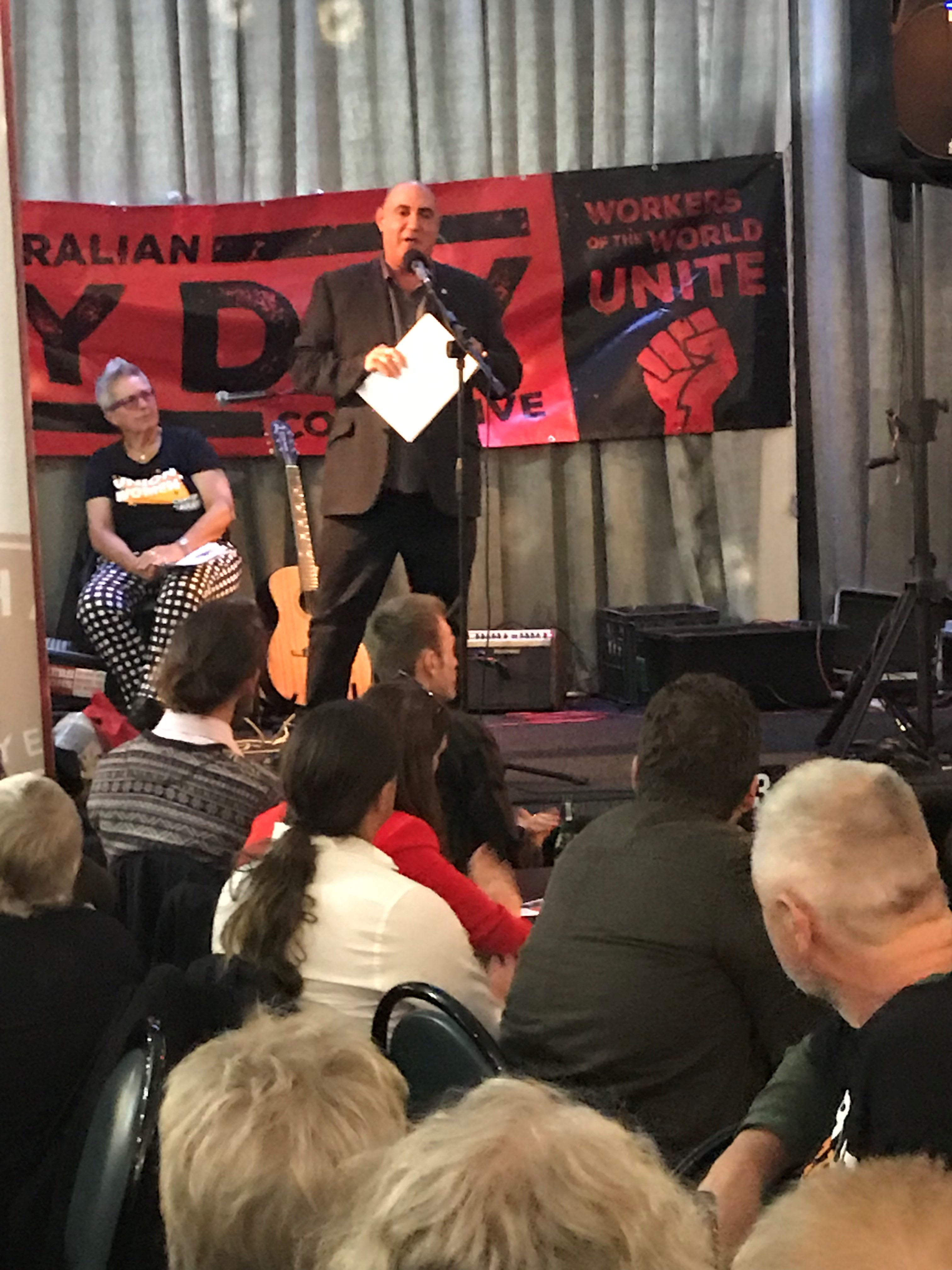10 June 2020
Article from April 2020 INPractice
Social Justice Advocate Dr John Falzon doesn't mince his words.

“There is nothing more frightening to the elite than when the despised get organised. And this (Federal) Government truly despises ordinary working people,’’ he says.
“That’s why the current Federal Government is so intent in pushing ahead with its vicious Ensuring Integrity Bill, which is about trying to undermine the independence of unions.’’
Dr Falzon OAM, a Senior Fellow in Inequality and Social Justice at Melbourne based think tank Per Capita, is a firm believer that inequality is a political choice.
“One of the tricks,” he says, “that neoliberal discourse constantly plays is to pretend that those who bear the brunt of inequality are doing so because of bad personal choices, but nothing could be further from the truth.
“Inequality is not a personal choice; it’s a political choice and it comes about through some very deliberate political trajectories.
“I often liken neoliberalism to a schoolyard where the bullies rule the roost and absolutely terrorise the other kids. In neoliberalism … the school principal is actually arming the bullies with sticks and telling their intended victims to stand still.
“And the reason that the union movement in all its diversity is so central to the battle against inequality is because instead of standing still for the bullies and their sticks the union movement stands up to them.’’
Dr Falzon, the national CEO of the St Vincent de Paul Society from 2006 to 2018, will be a guest speaker at the ANMF (SA Branch) 2020 Professional Conference on August 5. A poet, sociologist and author (The Language of the Unheard and a collection of poetry, Communists like us), he is a passionate advocate for unions and social change.
A member of the Australian Social Inclusion Board, Dr Falzon has served on countless government and community advisory committees and in 2015 was awarded an Order of Australia Medal for his work with social welfare organisations.
The son of Maltese parents who immigrated from the East End of London when he was aged seven, Dr Falzon and his family lived in his uncle’s garage when they first arrived in Sydney, before eventually moving into their own home. His sense of social justice was fuelled by his father’s battle with cancer “which was industrially caused’’.
2019, he believes, was an annus horribilis, marked by rising inequality and unemployment, attacks on workers’ rights, “structural oppression” of First Nations people and gendered violence against women.
Dr Falzon says nurses and midwives, “those who are at the frontline”, play an invaluable role in the fight against entrenched patriarchy and gendered violence, in “speaking out about it, in bearing witness and making sure that the structural nature of that violence is not pushed to the side”.
A healthy, strong, publicly resourced health system, he believes, “is really a key plank of a more equal society’’. “If the health of society has stopped improving, it’s a sign society has stopped improving. So, it’s clearly one of the most significant ways of measuring whether we have a fair society.
When you’ve got poor housing conditions, poor sense of self-determination, poor access to education, low income … then the poor health outcomes are going to follow. It’s abundantly clear that the more equal a society is the better its health outcomes across the population.’’
Dr Falzon believes neoliberalism’s attack on ordinary working people takes the form of a “two-pronged attack”. “On the one side neoliberal governments dismantle what is publicly owned and privatise and they move institutions and sectors away from the common good to being primarily for profit.
“We’ve seen the disastrous consequences for the aged care sector where what should have been about the care of people has become primarily about the increase in profits.
“This is disastrous for society … when you have the dismantling of not just the public sphere but the dismantling of the principle of being for the common good then everybody suffers.
“The other prong in the neoliberal attack on ordinary people is to try and atomise and disorganise the working class, primarily by attacking the union movement and trying to dismantle the effectiveness of the unions through draconian legislation.
“No progressive social change that I can think of (think workers’ rights, women’s reproductive rights, climate justice, marriage equality), has come from above.
They come from ordinary people on the ground … always a collective movement under the guiding star of struggle and hope,’’ he says.
“When you think about it, inequality is all about pandering to the demands of the already wealthy few instead of achieving the collective dreams of the many.’’
Can the fight against neoliberalism ever be won? “Absolutely! Neoliberalism in fact is eating itself to death,’’ Dr Falzon says. “We see it in the disconnect between profit and productivity, we see it in the fact it is allowing and encouraging wage stagnation, we see it in the degradation of essential social and economic infrastructure, including health.
“However, we can’t just sit back and wait to see that happen (a neoliberal implosion) because the ruling class is very good at reinventing itself in order to prevent a true democratisation of the economy.
“So ordinary people organised collectively, we are the ones who need to set a different agenda, build a new kind of society built on fairness for everyone.’’
The ANMF (SA Branch)’s Annual Professional Conference
Wednesday, October 14, and Thursday, October 15
At the ANMF (SA Branch) Conference Centre
191 Torrens Road, Ridleyton, South Australia.
Dr John Falzon will speak on October 15.
Click
here to read the April 2020 edition of INPractice